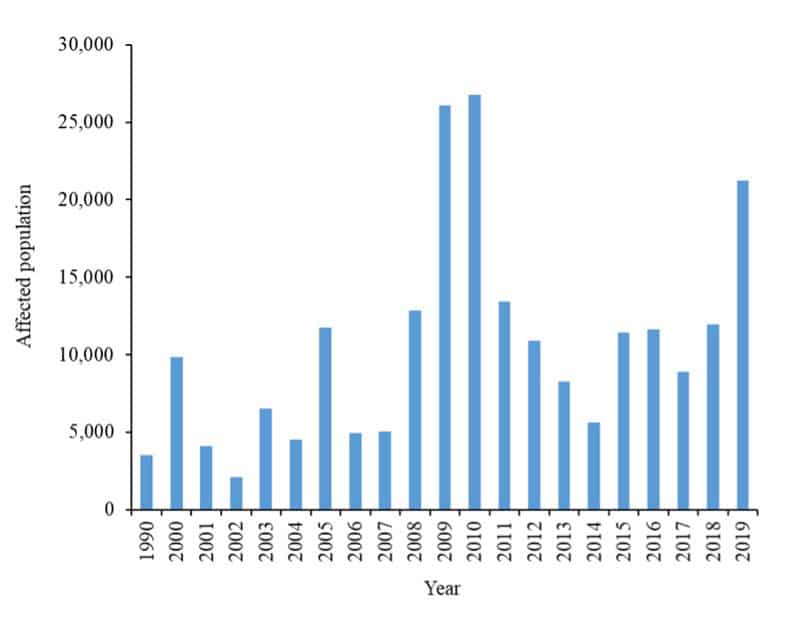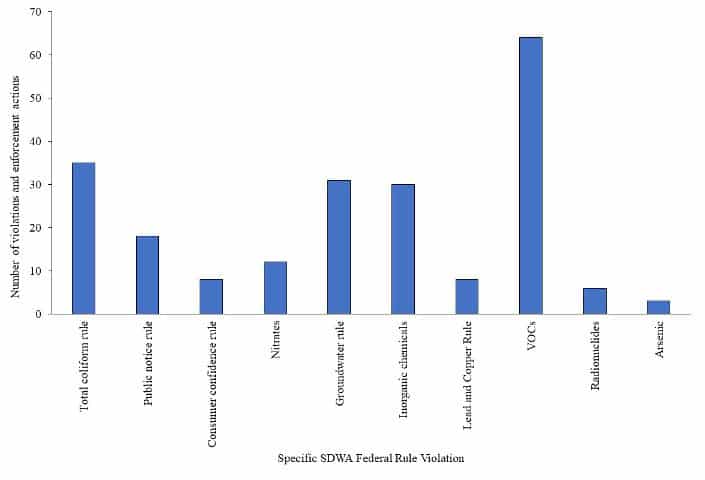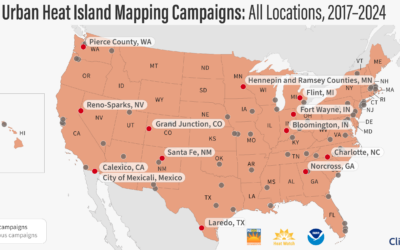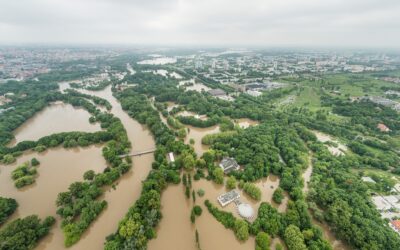New study analyzes trends, opportunities, and challenges related to water security in Nevada’s Native American communities
A growing number of Native American households in Nevada have no access to indoor plumbing, a condition known as “plumbing poverty,” according to a new study by a team from DRI and the Guinn Center for Policy Priorities.
The study assesses trends and challenges associated with water security (reliable access to a sufficient quantity of safe, clean water) in Native American households and communities of Nevada and also found a concerning increase in the number of Safe Drinking Water Act violations during the last 15 years.
Native American communities in the Western U.S., including Nevada, are particularly vulnerable to water security challenges because of factors including population growth, climate change, drought, and water rights. In rural areas, aging or absent water infrastructure creates additional challenges.
In this study, the research team used U.S. Census microdata on household plumbing characteristics to learn about the access of Native American community members to “complete plumbing facilities,” including piped water (hot and cold), a flush toilet, and a bathtub or shower. They also used water quality reports from the Environmental Protection Agency to learn about drinking water sources and health violations.
According to their results, during the 30-year time period from 1990-2019, an average of 0.67 percent of Native American households in Nevada lacked complete indoor plumbing – higher than the national average of 0.4 percent. Their findings show a consistent increase in the lack of access to plumbing over the last few decades, with more than 20,000 people affected in 2019.
“Previous studies have found that Native American households are more likely to lack complete indoor plumbing than other households in the U.S., and our results show a similar trend here in Nevada,” said lead author Erick Bandala, Ph.D., assistant research professor of environmental science at DRI. “This can create quality of life problems, for example, during the COVID-19 pandemic, when lack of indoor plumbing could have prevented basic health measures like hand-washing.”

Native American community members in Nevada with no access to plumbing from 1990 to 2019.
Credit: Erick Bandala, DRI.
Plumbing poverty may correlate with other types of poverty. Analysis by the study team showed that as the number of people living in a household increased, access to complete plumbing decreased significantly, in agreement with other studies.
Study findings also showed a significant increase in the number of Safe Drinking Water Act violations in water facilities serving Native American Communities in Nevada from 2005 to 2020. The most common health-based violations included presence of volatile organic compounds (VOCs), presence of coliform bacteria, and presence of inorganic chemicals.
“Water accessibility, reliability, and quality are major challenges for Native American communities in Nevada and throughout the Southwest,” said coauthor Maureen McCarthy, Ph.D., research professor of environmental science and director of the Native Climate project at DRI.

Types of Safe Drinking Water Act violations documented by the EPA for public water systems serving Native American communities in Nevada, 2005-2020.
Credit: Erick Bandala, DRI.
The study authors hope that their findings are useful to decision-makers and members of the general public who may not be aware that plumbing poverty and water quality are significant problems in Nevada.
More information:
The full study, “Assessing the effect of extreme heat on workforce health in the southwestern USA,” is available from the International Journal of Environmental Science and Technology: https://www.sciencedirect.com/science/article/pii/S1462901122002179?dgcid=author
This project was funded by the General Frederick West Lander Endowment at DRI. Study authors included Erick Bandala (DRI), Maureen McCarthy (DRI), and Nancy Brune (DRI, formerly of the Guinn Center for Policy Priorities).
###
About DRI
The Desert Research Institute (DRI) is a recognized world leader in basic and applied environmental research. Committed to scientific excellence and integrity, DRI faculty, students who work alongside them, and staff have developed scientific knowledge and innovative technologies in research projects around the globe. Since 1959, DRI’s research has advanced scientific knowledge on topics ranging from humans’ impact on the environment to the environment’s impact on humans. DRI’s impactful science and inspiring solutions support Nevada’s diverse economy, provide science-based educational opportunities, and inform policymakers, business leaders, and community members. With campuses in Las Vegas and Reno, DRI serves as the non-profit research arm of the Nevada System of Higher Education. For more information, please visit www.dri.edu.


